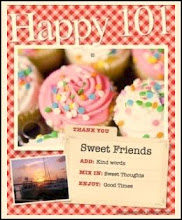 Mom picked this book up from the library the other day and while some of the information is old to her, some of it was new and really interesting. Depending on where you're at with the greening of your lifestyle, some of the information may be very eye opening to you.
Mom picked this book up from the library the other day and while some of the information is old to her, some of it was new and really interesting. Depending on where you're at with the greening of your lifestyle, some of the information may be very eye opening to you. The book is very well organized and easy to read. The information is laid out so the average person (or dog) can make heads or tails of it. I personally didn't read it because I can't read. Mom read it to me and I liked it even though most of it doesn't apply to me.
At the beginning of the book there's a cook's challenge - can you pass the eco-test? Good luck! It's not as easy as it looks, but you will learn a lot from it. Keep reading and you will be amazed at what you learn.
There is a chapter on greening your kitchen zones where you will find information about how much energy your appliances use. There are also tips on what to look for in new appliances and how to keep your current appliances running at maximum efficiency. Gray text boxes appear throughout the book, to highlight importan information, and one in this chapter talked about using cloth napkins every day. Mom saw this and yelled "Right on!". She bought organic cotton napkins earlier this year and they live in a basket on the kitchen island. She even got Dad to stop using paper napkins, which wasn't easy.
There is a whole chapter on ovens and one on cooktop cooking. Lots of great information here. I couldn't believe it when Mom told me that there was an entire chapter on frying. Mom rarely eats traditionally fried food, but I make up for all that she doesn't eat. She kind of skimmed through this chapter, but her favorite quote was this: If more people stir-fried, the world would be a greener place. Um, okay. Sounds delicious. Not!
Mom was particularly interested in the chapter on cookware because she is struggling with buying new stuff. Just last week when Mom and Dad were at an antique/flea market, Dad was scouring the stands for cast iron skillets. He didn't find any like he liked, so the hunt continues.
And then there's food. From what to buy and eat, there's some of the usual ideas contained in these chapters, but Mom's favorite stuff is always bulleted:
- Transportation creates 11% of an average U.S. household's greenhouse gases generated by food consumption.
- Agriculture and industrial emissions from growing and harvesting account for 83% of its greenhouse gases.
- The average distance traveled by food in the U.S is 4,000-5,000 miles.
- Livestock are the main island source of phosphorus and nitrogen contamination of the South China Sea, contributing to biodiversity loss in marine ecosystems.
- Meat and dairy animals not account for about 20% of all terrestrial animal biomass. Livestock's presence in vast tracts of land and its demand for feed crops also contribute to biodiversity loss; 15 out of 24 important ecosystem services are assessed as in decline, with livestock identified as a culprit.
I'm not surprised by the damage livestock does to the world. Mom is always harping on Dad to stop eating so much meat. But who cares about what happens in the South China Sea? I do. Why? Because what happens there affects us here. We are all in this together, remember?
Okay, now for more bullet points. These come to us from the U.S. Geological Survey, which monitors water and lists these numbers as the amount of water needed to create a single serving of:
- Steak = 2,607 gallons
- Chicken = 408 gallons
- Milk = 65 gallons
- Rice = 36 gallson
- Almonds = 12 gallons
- Lettuce = 6 gallons
- French fries = 6 gallons
- Tomatoes = 3 gallons
A plant-based diet requires 300 gallons of water per day.
A meat-based diet require more than 4,000 gallons of water per day.
Again, who cares? I do and you should too! Eating lower on the food chain requires less natural resources which is good for everyone. Over ten times the amount of water is required for a meat-based diet versus a plant-based diet. What a waste! Water is not an infinite resource so once it's gone, it's gone. We need to conserve it just as much as we do other natural resources instead of taking it for granted. We are lucky to have drinkable tap water at our fingertips since many people around the world only dream of this luxury.
What would a green book be without a chapter on waste? I sometimes think Mom is obsessed with waste because it is all around her. She knows that so much food is wasted every day in our own house, but how much is wasted around the country? The numbers are shocking.
- Americans generate 1 pound of food waste per day for every adult and child in the country.
- Americans throw out 27% of all food available for consumption (including food from homes, supermarkets, food service, and restaurants)
- Just 5% of the wasted food in the USA could feed four million people per day.
- Americans generate 30 million tons of food waste annually, or 12% of the total waste stream, and 98% of the food waste ends up in landfills (not composted).
Can you guess how the book ends? Recipes! There are both meat and non-meat recipes, so there is something for everyone. Each recipe has a green meter which gives you the green goodness, prep/cooking times, prime season, convenience, and new green basic information. Mom really liked this information because it is such a new twist on recipes. The very idea of geen cooking is based on how green the recipe is, but I'm not just talking about food here. The author even provides some personal perspective on each recipe by providing information about the ingredients, the origin of the recipe, and /or the cooking process.
I highly recommend this book, even if you think your lifestyle couldn't be greener. There is always something new to learn in every book you read, so take the time to expand your mind. And just so you don't think that a green cooking book can't possibly get any greener, I present to you the environmental benefits statement. This information is on the last page of the book and it provides lots of insight into the changes that can and are being made in book publishing.
Persus Book Group saved the following resources by printing the pages of this book on chlorine free paper made with 100% post-consumer waste:
- 83 fully grown trees
- 30,153 gallons of water
- 58 million BTUs
- 3,872 pounds of solid waste
- 7,264 pounds of greenhouse gases









2 comments:
hi stubby!
oh this is wonderful! thank you for showing us this book!
happy monday you two!
xoxoox
m & e
Hi Melissa & Emmitt! I'm glad you like this book. Aren't some of those facts scary? Mom is hoping to encourage some people to change their eating habits, but I know that you guys already don't eat a lot of meat.
Happy Monday to you guys too!
Stubby xoxo
Pee-s: Dad totally forgot about Meatless Monday and I didn't remind him. I've been doing my happy dance all day long!
Post a Comment